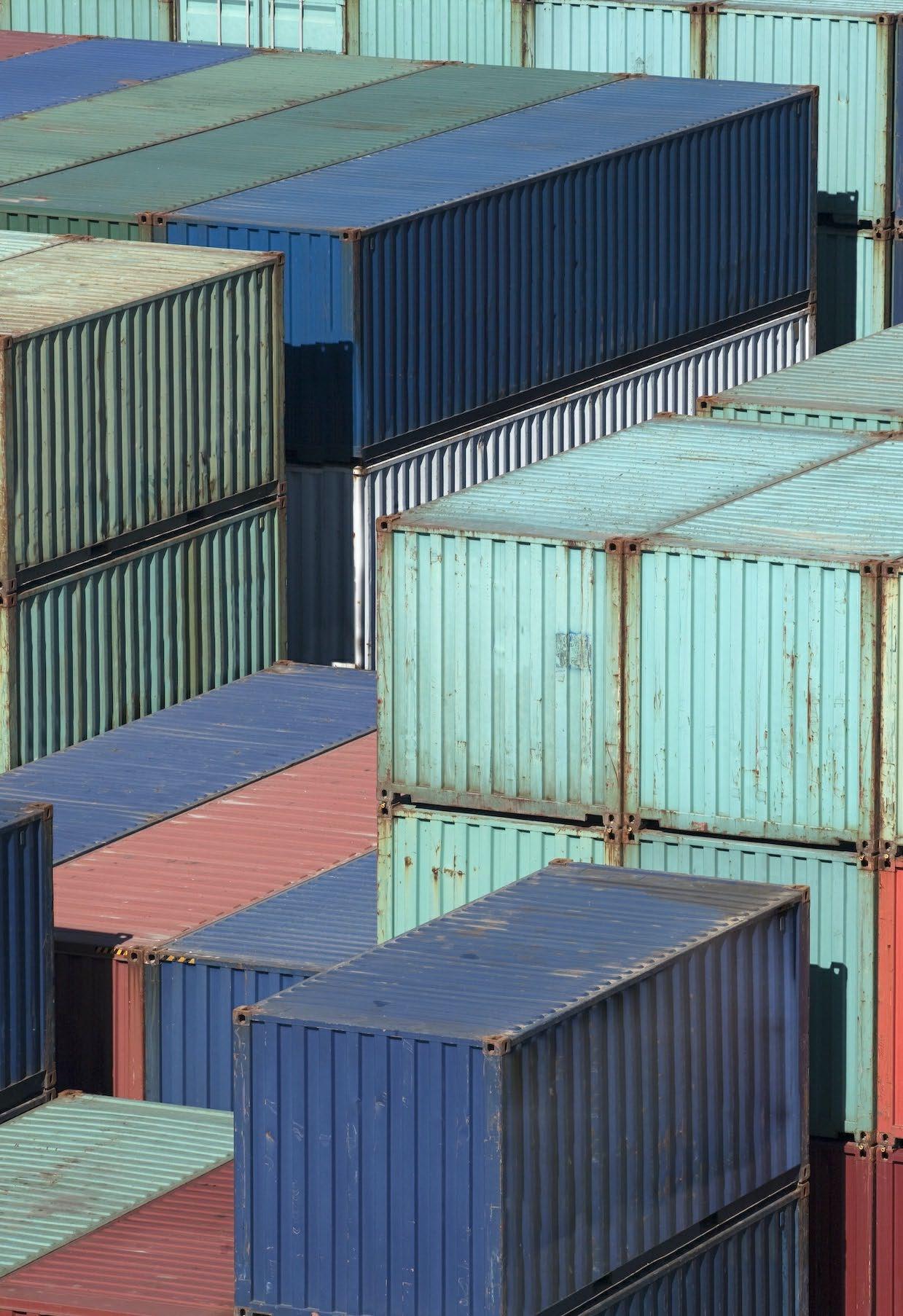

Due diligence for responsible business conduct with regards to people, animals, society and the environment
Account reporting year 2023
For IDÉ House of Brands AS

Ethical Trade Norway has assessed the report of IDÉ House of Brands AS to meet the criteria of our Base Level. More information about our Base Level can be found here.
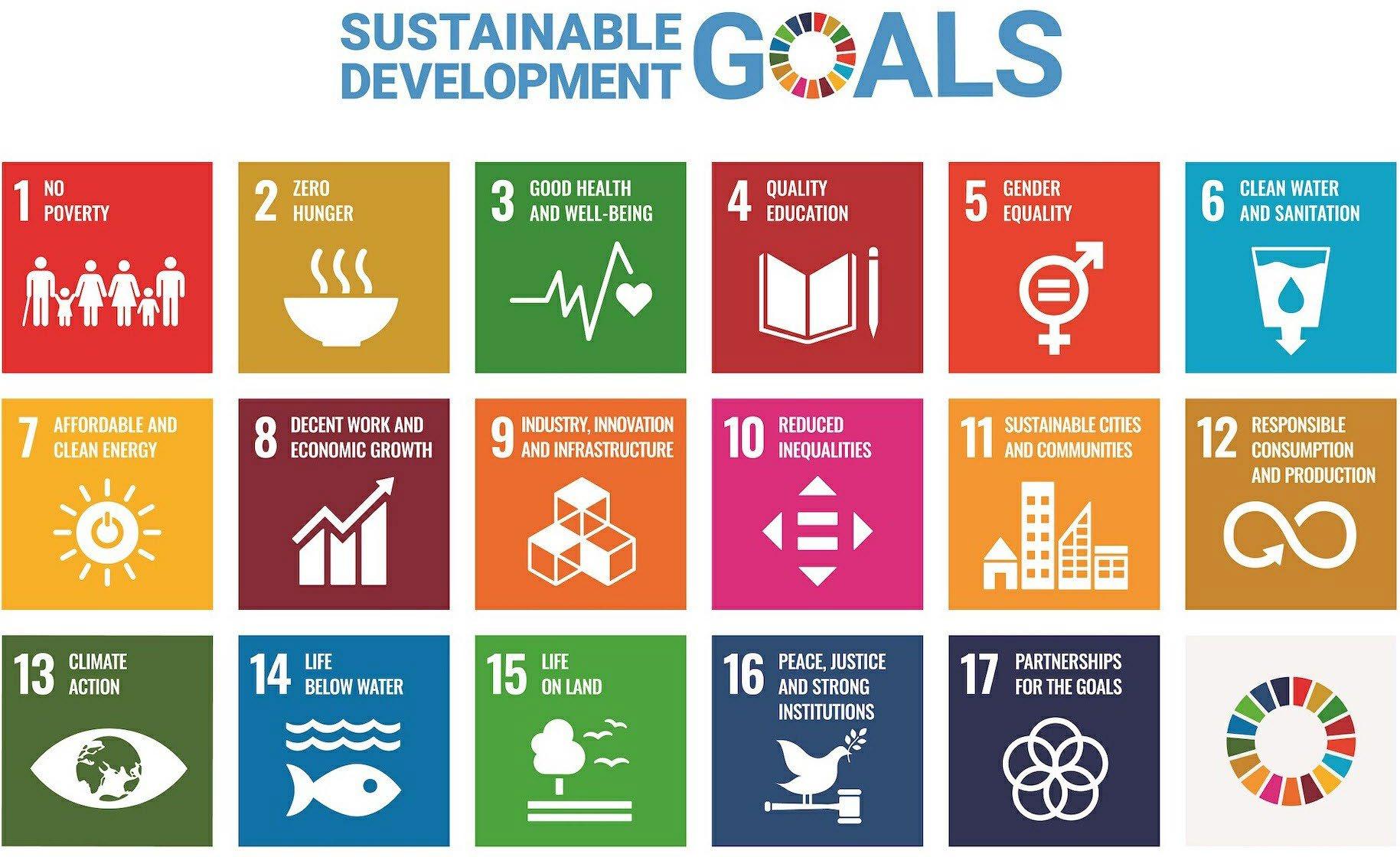
To Readers of the report
Enterprises and the public sector have a great impact on people, society, the environment, and animals and can both contribute positively to development, or negatively by causing harm. Enterprises therefore hold a central role in achieving UN’s Sustainable Development Goals (SDGs) and the Paris Agreements 1,5 - degree target.
This report can be used as an account for the Transparency Act, but it has a broader scope with climate and the environment, circular economy, and anti - corruption indicators also being included. Our members are obligated to carry out due diligence and report annually on their work. Base level members also meet the Transparency Act’s due diligence duty, and partially the Act’s information duty.
Ethical Trade Norway’s concept of responsible business conduct equals OECD’s terminology and due diligence methodology. This is the systematic effort that enterprises do to identify, prevent, or mitigate adverse impacts and explain how they manage their risks of negative impact, as well as provide remediation to people, animals, society, and the environment where this is required – is called due diligence. Norwegian authorities expect all enterprises, regardless of their size, to carry out due diligence on society, the environment, and animals in accordance with the UN’s Guiding Principles for Business and Human Rights (UNGP) and OECD’s Guidelines for Multinational Enterprises. This applies to enterprises, the public sector, and organisations.
Ethical Trade Norway’s Declaration of Principles (our Code of Conduct) for Responsible Business Conduct covers the areas of decent work, human rights, environment/climate, anticorruption, and animal welfare. This report is done in full transparency and in line with UNGP and OECD’s guidelines. The reports of all members are publicly accessible on Ethical Trade Norway’s website.
 Heidi Furustøl Executive Director Ethical Trade Norway
Heidi Furustøl Executive Director Ethical Trade Norway

IDÉ House of Brands AS I 2
Due diligence
This report is based on the UN Guiding Principles on Business and Human Rights and the OECD model for Due Diligence for Responsible Business Conduct.
The model has six steps that describe how companies can work for more responsible and sustainable business practice. However, being good at due diligence does not mean no negative impact on people, planet and the society. It means that the company is open and honest about challenges faced and shows how this is managed in the best possible way in collaboration with its stakeholders. This report is divided in chapters following the OECD model.


IDÉ House of Brands AS I 3
Preface From CEO
Since 2008, IDÉ House of Brands has been committed to work according to the most sustainable business practices as possible. We are a Nordic company, but we work far beyond the Nordic borders through international customers and partners across the continent. This gives us an obligation and a social responsibility. We are aware that that we represent an industry that must make strict demands on itself and that is also, and will continue to be, under strict rules and directives. We are constantly encountering new challenges and want to work through these in the best way as possible.
At IDÉ House of Brands, we will have a shared set of values that set the standards for ourselves and our impact on people, society and the environment. We work with this every day, and it is reflected in our core beliefs, vision, strategy and goals. Over a number of years, we have improved, evaluated and developed all our processes, both internally and externally, in relation to the environment and society. This delivers results for IDÉ, our customers, our partners and society. All our relationships should be 100% confident that IDÉ has the knowledge to make the best possible decisions together. Awareness is key and, as one of the larger players in the market, we recognise our position as both an influencer and an actor. Visibility through product media with an awareness of sustainability is our goal. And our customers expect us to deliver quality at every stage, from service to product, production and logistics. logistics. Although it is a challenge to change mindsets in an industry like ours, we see this as a unique opportunity to engage in a closer dialogue with both partners and customers.
IDÉ House of Brands has been a member of Ethical Trade Norway for 13 years, during which time we have established a sustainability management team that meets monthly, as well as a sustainability team that works exclusively in this area and focuses on product quality. Through regular monitoring based on Ethical Trade Norway's guidelines and our own experience, we see that systematic work produces results. Our sustainability work is ongoing and has been given a permanent place in our business strategy. We are also pleased to see that our entire industry, which is multidimensional and complex, has taken a big step in the right direction in recent years, and we want to be at the forefront. We believe that we have taken important and correct steps in recent years and that we are well on our way. From being asked by customers for 'green products', we are now working strategically and systematically, both internally and externally, to improve routines, production methods and, not least, the traceability of the products we make. The evolution has been tremendous, and we are taking this forward in our systematic and focused work on due diligence at all stages of the supply chain, as well as in our advice to our customers.
We appreciate being able to write and present a report like this. It shows what we're focusing on, the actions and processes we're working on, the results we've achieved and, not least, reminds us that it's useful to work one step at a time. We have some exciting plans for the year ahead. IDÉ House and Brands will continue to challenge ourselves and our partners. We look forward to reporting back in 2024.
”IDÉHouseofBrandsstrivestohavesustainablebusinesspractices thatrespectpeople,societyandtheenvironment."
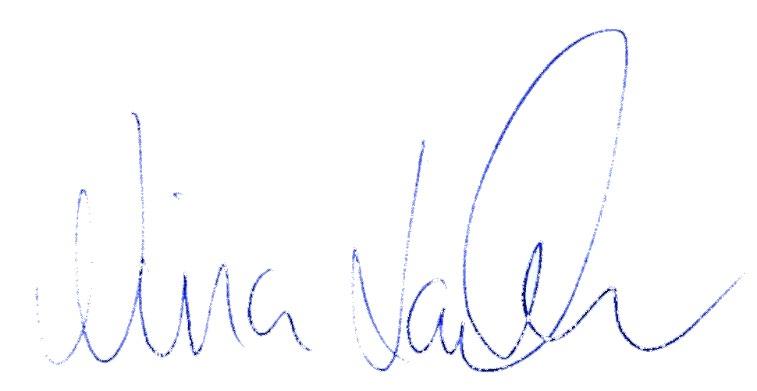 Nina Lauritzen Managing Director
Nina Lauritzen Managing Director

IDÉ House of Brands AS I 4
The boards’ signature
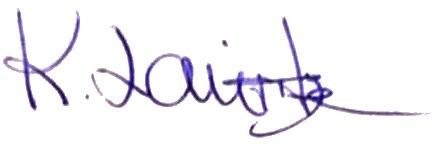 Kirsten Lauritzen
Lise Lauritzen Board member Board member
Kirsten Lauritzen
Lise Lauritzen Board member Board member

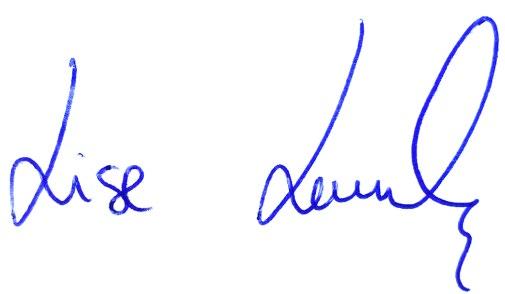 Nina Lauritzen Lasse Lauritzen Managing Director CEO Board member Board member
Nina Lauritzen Lasse Lauritzen Managing Director CEO Board member Board member
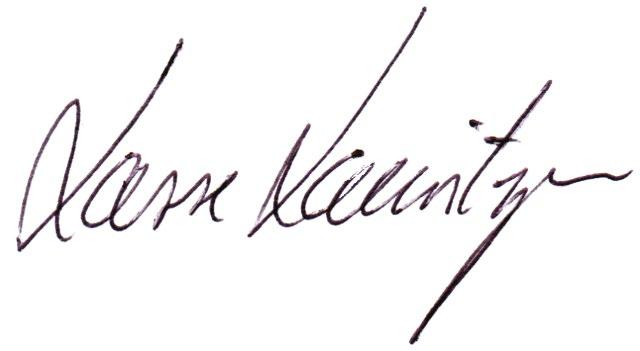

IDÉ House of Brands AS I 5
Company information and business context
Key company information
Company name
IDÉ House of Brands AS
Head office address
Dyrløkkeveien 19, 1448 Drøbak. Norway
Main brands, products and services offered by the company
IDÉ House of Brands AS is the Nordic region's leading supplier of product media to the corporate market. This includes promotional products, corporate clothing, gifts, food and beverages, office supplies, large format and exhibition equipment.
Description of company structure
IDÉ House of Brands AS was established in 1987 by Lasse Lauritzen and Morten Pedersen. The company is currently comprised of the holding company Lauritzen Holding AS, which owns IDÉ House of Brands AS, IDÉ House of Brands Sweden AB, IDÉ House of Brands Oy (Finland), IDÉ House of Brands A/S (Denmark), IDÉ House of Brands (Iceland), House of Print AS, IDÉ Eiendom AS, and Lauritzen Eiendom AS. The Lauritzen family holds 100% ownership of Lauritzen Holding AS.
IDÉ House of Brands AS has been in business for 36 years, and our strength lies in the expertise of our employees. We are Europe's largest privately owned company for promotional products, or ‘Product Media’ as we call it. This encompasses a comprehensive range of products, including promotional items, corporate apparel, gifts, food and beverages, office supplies, large - format printing and trade fair equipment.
Our purchasing department consists of the Nordic Head of Purchasing & Logistics and category managers, who handle the co - operation agreements we have with a selection of suppliers and manufacturers. We call our suppliers and manufacturers contract partners. All our sales offices have project managers (salespeople) and coordinators who themselves buy goods from these contract partners. We only work with B2B.
The Board of Directors and CEO are formally responsible for the work on due diligence for sustainable business practices. Operational responsibility is divided between sustainability management and the purchasing department, which is lead by the Nordic Head of Purchasing & Logistics. The purchasing department is responsible for the majority of executive work, with category managers responsible for contract partners and products in their respective categories. The purchasing department is in Norway but works for all departments in all countries.

IDÉ House of Brands AS I 6
The Head of Sustainability and Product Quality has the operational responsibility for due diligence and reports to the Nordic Head of Purchasing & Logistics, who in turn reports to the CEO. Reporting takes place via half - yearly reports which are approved by the Managing Director and CEO.
In 2023, IDÉ House of Brands had the following number of man - years:
NORWAY: 119.37 FTEs across 8 offices..
SWEDEN: 19.54 FTEs across 3 offices.
DENMARK: 32.5 FTEs across 3 offices.
FINLAND: 9 FTEs in 1 office.
ICELAND: 1.5 FTEs in 1 office.
Turnover 770 million applies to Lauritzen Holding AS Turnover 490 million applies to IDÉ House of Brands AS (Norway)
Turnover in the reporting year (NOK)
490 000 000
Number of employees
182 Is the company covered by the Norwegian Transparency Act?
Yes
Major changes to the company since last reporting period
There have been no significant organisational changes during the reporting period covering 1 January 2023 - 31 December 2023. December 2023.We have decided to strengthen our work with sustainable business practices and have recruited 2 people who will take up their positions on 2 January 2024. IDÉ will then have a team of 3 people working with sustainability and product safety.
Contact person for the report (name and title)
Wenche Moseng, Head of Sustainability and Product Quality
Email for contact person for the report w enche. m oseng@idegroup.no

IDÉ House of Brands AS I 7
Supply chain information
General description of the company's sourcing model and supply chain
IDÉ House of Brands AS endeavors to cultivate long - term relationships with contractual partners, which include brand suppliers, agents and manufacturers. The company's diverse product range necessitates the engagement of numerous types of contract partners. The business does not employ employees solely dedicated to purchasing. Instead, project managers (salespeople) and their coordinators are responsible for procuring goods and organising decoration before they are sent to customers. The term "purchasing department" encompasses the Nordic Head of Purchasing & Logistics and category managers, who collectively bear responsibility for the agreements in place with our partners. In addition, the Nordic Head of Purchasing & Logistics bears primary responsibility for the teams engaged in our own print shop, warehouse, logistics, sustainability, and product quality operations.
The category of "own or joint venture production" encompasses our own printing facility in Drøbak and House of Print AS at Sofiemyr.
The category of direct contracting/purchases encompasses the production undertaken by the company itself at factories or via agents. This is referred to as 'special production '. Special production encompasses the modification of standard products or newly developed products. If a standard product is modified in terms of shape, colour or choice of material, it falls into the category of special production. This applies to 61 contract partners and accounts for 12 per cent of the company’s turnover. It should be noted that the company does not have ownership in any of the factories it uses.
Purchases through agents, intermediaries, importers, and brands encompass products manufactured and/or imported to the EU by a contract partner. These products are subsequently decorated with customer logos prior to distribution to customers.
The category of " Other " encompasses activities such as warehousing, design work, packaging, and the operation of web shops.
In the reporting year, we had written co - operation agreements with 236 contractual partners. In order to have the best possible control of the supply chain, we have set a target that 90 % of our purchases should be made via these partners. We call this ‘ partner loyalty ’ The remaining 10% may include catering, purchases for office operations, warehouse rental, specific brands requested by customers and so on.
In the year 2023, our partner loyalty was as follows:
Norway: 90,94%
Sweden: 88,96%
Denmark: 51,98%
Finland: 87,82%
Iceland: 87,6%
= General partner loyalty 81.46%
Number of suppliers with whom the company has had commercial relationships in the reporting year

IDÉ House of Brands AS I 8
236
Comments
As a member of Ethical Trade Norway, IDÉ House of Brands AS commits to work actively with due diligence for sustainable business practices. Due diligence is a risk - based approach to respecting and safeguarding people, society and the environment in our own operations and throughout the supply chain. We expect our suppliers and partners to follow the same approach.
Type of purchasing / Supplier relationships
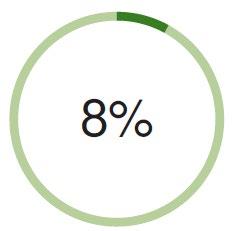
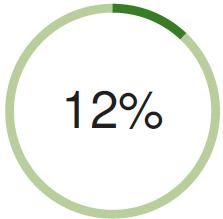
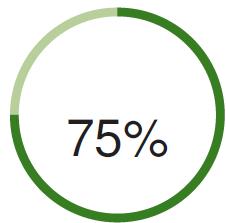
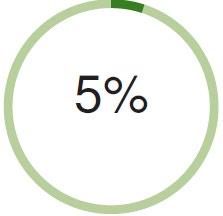
Own or joint Direct contracting/ Purchases through Other venture production purchases agents/intermediary/ importers/brands
1. Own or joint venture production includes our own printing house in Drøbak and House of Print AS at Sofiemyr.
2. Direct contracting/purchases includes the production we do ourselves in factories or via agents. We call this “special production”. Definition on special production is modification of standard product or newly developed products. If a standard product is modified in shape, color or choice of raw materials the product is categorized as special production.
3. Purchasing through agent/intermediary/importer/brands includes those products that are manufactured and imported into the EU by a partner. We purchase these products and decorate them with customer logos, before distributing them to our customers.
4. Other applies to warehousing, design work, packing and operation of web shops.

IDÉ House of Brands AS I 9
List of first - tier manufacturers by country
Bangladesh:
India:
Italy
China
The Netherlands
Poland
South - Korea
Sweden
Turkey
Austria
In addition, we have 42 agents/intermediaries that are used for specialised production, as described earlier in the report.These finalise their goods in Norway, Sweden, Belgium, the Netherlands, China, Poland, Taiwan and Thailand.Our agents/intermediaries are divided into two categories:
1. Wholesalers with good roots in the Nordic region , who allow us to use the factories in their own portfolio and sharethe work of due diligence with us (33).
1. Agents without ownership in factories . They have large portfolios and pose the greatest risk to us in terms of transparency in the supply chain (13)
State the number of workers at first tier manufacturers that the company has an overview of, and the number of suppliers this overview is based on:

IDÉ House of Brands AS I 10
Number of workers 3 520 Number of suppliers this overview is based on 5 1 2 10 1 1 1 2 4 1 10 1
Number of workers per supplier (calculated average)
587
Comment to number of workers
The figure applies to 6 first - tier manufacturers, who have a total of 9 factories
Key inputs/raw materials for products or services and associated geographies
Cotton Bangladesh, China, Turkey
Polyester Bangladesh, China
Leather China, India
Glass
China, The European Union
Metal China
Plastic
Wood and paper
China, The European Union
China, The European Union
We have listed the most important raw materials most often used to manufacture the product groups where we have our own “special production”.
Special production accounts for 12% of our total turnover and in 2023 was divided into the following percentages:
Textiles - 37%.
Bedding/Giveaways - 22.42%.
Backpacks, bags and shopping bags - 20.85%
Food contact materials - 9.97%
Reflectors and reflective products - 3.94%
Office supplies - 2.44%
Gift items - 1.93%
Toys - 0.89 %
Prizes, trophies and medals - 0.28%
Cosmetics and body care products - 0.23%
Is the company a supplier to the public sector?
Yes

IDÉ House of Brands AS I 11
Goals and progress
Process goals and progress for the reporting year

Goal:
Status:

Goal:
Status:
Partner loyalty in Norway: We will, as far as possible, use partners with a written agreement and increase the percentage from 87.65% to 90%.
We have increased partner loyalty in Norway from 87.65 per cent to 90.94 per cent

Goal:
Partner loyalty in Sweden, Denmark and Finland : As far as possible, we will use partners with a written agreement and reach an overall loyalty of 85%.
Sweden and Finland have achieved the target of 85% partner loyalty, whereas Denmark has a lower average. This is due to the acquisition of B - Conzept in the previous reporting period, which has resulted in the utilisation of previous suppliers who were not contractual partners with IDÉ House of Brands. A portion of their portfolio has been implemented, and a collaboration agreement has been signed. The focus will be on enhancing partner loyalty in Denmark and establishing new targets for 2024.
Supplier evaluation: All contract partners will be sent the CEMAsys ESG survey in 2023. The survey will be adapted to the Norwegian Transparency Act. The purpose of the survey is to raise awareness among business partners of the importance of working with ESG. The responses will be used to identify areas for improvement and to inform the development of assistance measures. This has now been introduced as a new routine.
Status:
The survey, which had been adapted to the Transparency Act, was sent to 172 agreement partners in the desired language (English or Norwegian).
A total of 79.5% of respondents completed all survey questions. 13% began answering but did not finish, while 7.5% did not open the survey link.
The survey will continue to be conducted in order to facilitate the planning process and to provide assistance in the implementation of action plans.

Goal:
Status:
The initial stage of the supplier evaluation process will involve the utilisation of the CEMAsys questionnaire, which has been adapted to align with the stipulations of the Norwegian Transparency Act. This will serve as the primary instrument for the assessment of potential new partners.
The process of implementing a new routine for supplier evaluation has been completed. During the reporting year, the number of supplier evaluations conducted exceeded those conducted in a normal year. This increase can be attributed to the implementation of parts of B - Concept's previous portfolio. The consequence of the newly implemented procedures was that 20% of the suppliers evaluated were not selected for a contractual agreement.

IDÉ House of Brands AS I 12

Goal:
Status:

Goal:
Status:
We will become a member of amfori BSCI
We have entered into an agreement with amfori and have commenced the process of registering all our first - tier producers on the platform. Our membership includes BSCI and BEPI.
Supplier evaluation of first - tier manufacturers: We will pay for or provide financial assistance to conduct Amfori BSCI audits at 5 manufacturers that do not have such an audit and that we have assessed as high risk.
The target date has been revised to 2024. This is due to the fact that we are currently engaged in the process of registering all of our first - tier manufacturers on the amfori platform and are seeking to gain a deeper understanding of the potential benefits that our membership can offer. The amfori academy offers a comprehensive range of courses and workshops that facilitate the promotion of responsible business practices throughout the supply chain. A plan will be devised to utilise this resource in the years to come.

Goal:
Status:
Supplier evaluation agents: Mapping 5 subcontractors at 5 of our most utilised agents.
The implementation phase of the project commenced. We were able to obtain information from a selection of wholesalers, as well as from some of the agents with whom we have had a long - standing relationship. This work will continue in the next reporting period.

Goal:
Status:

Goal:
Status:
Climate accounting scope 1 and 2: We will create annual climate accounts with the CEMAsys carbon emissions module.
Completed and published on our website and internally on our intranet.We reduced our total market - based emissions by 26.3% compared to the year 2022.
We will buy climate quotas to compensate for our greenhouse gas emissions
In 2022, IDÉ House of Brands emitted 55 tCO2e in scope 1 and 2. To compensate for these emissions, we purchased 2,500 mangrove trees, which will provide compensation equivalent to 80 times our own emissions. The carbon offsets in question are directed towards the Thor Heyerdahl Climate Park, situated in the Ayeyarwady region of Myanmar. The project in question has been certified and is aligned with the SDGs (Sustainable Development Goals) for the purposes of social and environmental improvement.

IDÉ House of Brands AS I 13

Goal:
Status:

Goal:
The objective is to increase the proportion of electric company cars from 65% to 90%.
It is regrettable to report that this was not a viable option, as we are contractually obliged to adhere to our leasing agreements. All new leasing agreements will include electric or hybrid vehicles.
Status:
The concept of a living wage is one that will be encouraged by this initiative. In order to facilitate the implementation of this concept, it is proposed that one partner in China and one in Bangladesh be encouraged to specify the costs of living wage, insurance and other welfare benefits in price offers. These are two partners with whom we have had a long - term and mutually beneficial working relationship. In order to achieve this, it is proposed that dialogue and alternating inquiries be employed.
We encourage and facilitate dialogue, but it has proven more complex than anticipated to obtain this information on all quotes. This is due to our business model, which does not involve a dedicated buyer. We have set the same target for the next reporting period but will prioritize purchasing the products we order for our own warehouse initially. These orders are placed by category managers in the purchasing department, who have regular and close dialogue with our contract partners.

Goal:
Status:

Goal:
Status:
We will communicate the importance of employees being able to raise concerns about their own workplace in the supply chain. We will do this through dialogue.
We will continue to engage in regular dialogue throughout the next reporting period.
We will do an upgrade of our EcoVadis membership
We have upgraded our membership status and undergone a new audit. The silver medal is a testament to the company's achievements in comparison to other assessed entities. While it is not indicative of a company's complete lack of room for improvement or potential weaknesses in its sustainability practices, it does serve as an indicator of positive intent. As we endeavour to enhance our performance in the domain of sustainable business practices and to amplify their impact..

Goal:
Status:
We will support SOS Children's Villages
A considerable sum has been allocated to support SOS Children's Villages. Our commitment contributes to the achievement of Sustainable Development Goal 4, which is to ensure inclusive and quality education for all.

IDÉ House of Brands AS I 14
G oals for coming years

Partner loyalty in Norway:
The use of suppliers that have not been identified or are unknown carries a significant risk in terms of our commitment to respect people, society, and the environment.
To achieve this, we have set a strategic goal of sourcing 90% of our purchases from partners with a cooperation contract. This is what we refer to as "partner loyalty.“
For the reporting period from January 1 to December 31, 2024, the target for Norway is 90% partner loyalty.

Partner loyalty in Denmark:
In 2022, IDÉ House of Brands acquired B - Concept. During the current reporting year, they have leveraged numerous resources from their original supplier portfolio. This has resulted in a reduction in partner loyalty compared to previous reporting years. The supplier portfolio has undergone a significant change, which has resulted in a decline in partner loyalty compared to previous reporting years. In 2024, the objective for Denmark is to enhance partner loyalty from 51.98% to 70%.One of the measures is the close follow - up of new employees in the Sustainability and Product Safety team, which is based in Denmark.

Partner loyalty in IDÉ Group (Norway, Sweden, Finland, Denmark and Iceland)
In the next reporting period, the target for all countries is a total partner loyalty of 80%.

Supplier Evaluation:
The CEMAsys "Supply Chain Control" platform will be utilized to continue our work on transparency and due diligence in the supply chain. In the upcoming reporting period, only a select group of partners will receive questionnaires, with specific follow - up questions that address the topics identified as high risk in previous surveys. The rationale behind this approach is our objective of implementing a more comprehensive follow - up strategy, including concrete measures and training. Furthermore, the new routines for supplier evaluation of potential new partners will be further developed.

EcoVadis:
We will achieve a gold medal. We are only a few points short, and we will achieve this by working systematically to become certified in accordance with ISO45001 Management systems for the working environment

Amfori:
All first - tier producers must be registered in the system. We have allocated resources to conduct five BSCI audits, should the need arise.

IDÉ House of Brands AS I 15

Climate accounting:
As in previous years, we will report on scope 1 and 2.In the forthcoming reporting period, we will also present data on selected elements of scope 3, namely waste, business travel and transportation.

Climate Quotas:
It is our intention to purchase carbon offsets in order to compensate for our greenhouse gas emissions. This is a course of action that we have already taken in the year 2022 and 2023

It is crucial for employees to be able to voice their concerns and influence their own work environment . We will facilitate dialogue within the workplace to address issues related to the supply chain..

The concept of a living wage will continue to be a subject of discussion and adjustment, with the objective of achieving a target that is aligned with the realities of the current reporting period. The focus will be on the products ordered for the company warehouse.

ISO 14001 and 9001 :
Denmark will be certified according to these standards, in the same way as Norway, Sweden and Finland

We will start the process of becoming certified according to ISO 45001 (occupational health and safety management system), ISO 27001(information security) and ISO 37001 (anti - corruption)

IDÉ House of Brands AS I 16
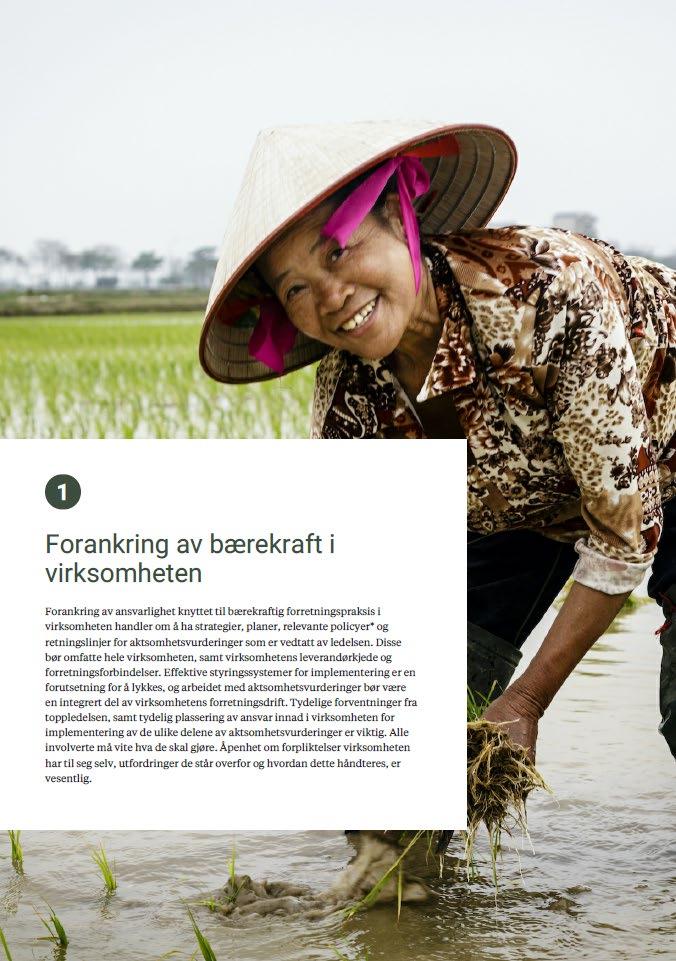

Governance and commitment to responsible business conduct
Embedding responsible business conduct means that the company should have strategies and plan, as well as relevant policies* and guidelines for due diligence for responsible business conduct (hereafter due diligence) which are adopted by management. These should comprise the enterprise’s own operations, its supply chain and other business relationships. Effective management systems for implementation are key to success, and due diligence should be an integrated element in company operations. Clear expectations from senior management are crucial, as well as clearly assigned responsibilities within the company, for the implementation of the steps in the due diligence process. Those involved need to know how to proceed. Transparency about commitments the company has for itself, challenges they are facing, and how these are managed is fundamental
1.A Policy* for own business
1.A.1 Link to publicly accessible policy for own business
IDÉ House of Brands - Read more about our sustainable business practice (idegroup.eu)
1.A.2 What does the company say publicly about its commitments to respect people, society, the environment and climate?
IDÉ House of Brands strives to have sustainable business practices that respect people, society and the environment. Our policy is in line with Ethical Trade Norway's principles for sustainable business and commits us to:
- Conduct due diligence for sustainable business practices, including ensuring or contributing to remediation where required.
- Ensure responsible sourcing practices, including continuously working to adapt our own sourcing practices to improve conditions for people, animals, communities and the environment in the supply chain.
- Support the right to freedom of association and other forms of democratically elected employee representation in own operations and our supply chain.
- Avoid trading partners that have activities in countries that are subject to a trade boycott by the United Nations (UN) and/or Norwegian authorities.
- Take a clear stance against corruption and bribery.
The policy in question has been adopted by the Board of Directors and is made available to the public on the company website. It is available in three languages: Norwegian, English and Chinese. We consider responsible sourcing to be one of our most important tools for strengthening our partners, enabling them to deliver on the requirements we set to ensure good conditions for people, society, and the environment. We endeavor to cultivate enduring partnerships with partners who demonstrate a particular proclivity and aptitude for fostering positive development. The supply chain is a key area of focus.
It is acknowledged that the industry in question is intricate and multifaceted. Consequently, there is a desire for greater transparency and the transfer of knowledge within the industry. We are committed to our customers' commitment to sustainability. Therefore, we request that our customers collaborate with us and select the most sustainable options for their businesses. We urge our partners to modify their operations and products to ensure that they do not cause harm to people, society, or the environment. We believe that this is the most effective way to achieve our goal of promoting products that are both beneficial to customers and environmentally responsible. Therefore, we prioritize working with partners who have established rigorous standards for their products and production processes, in addition to demanding high standards for product quality and functionality.
1.A.3 How has the policy/commitment been developed and how is it embedded in the company?
Guidelines for the company's own operations, including those for contract partners and other business relations, have been developed from a template prepared by Ethical Trade Norway and are in line with EHN declaration of principles. The Head of Sustainability and Product Quality has prepared the aforementioned guidelines for IDÉ House of Brands. The revised document was subjected to further review by the sustainability management team and the Nordic Head of Purchasing & Logistics, before being formally adopted by the management team and the Board of Directors.

IDÉ House of Brands AS I 18
1.B Organisation and internal communication
1.B.1 How is the due diligence work organized within the company, and why?
The Board of Directors and the Chief Executive Officer are formally responsible for conducting due diligence with regard to the implementation of sustainable business practices. The operational responsibility for sustainability management is divided between the purchasing department, which is headed by the Nordic Head of Purchasing & Logistics, and the sustainability management department. The majority of executive work is conducted by the purchasing department, where category managers are responsible for The purchasing department is responsible for contract partners and products in their respective categories. The department is headquartered in Norway but serves all departments and countries. The Head of Sustainability and Product Quality is responsible for operational due diligence and reports to the Nordic Head of Purchasing & Logistics, who in turn reports to the CEO. Reporting occurs via semi - annual reports, which are approved by the Managing Director and CEO.
The sustainability management team is comprised of Managing Director, Nordic Head of Sales, CEO in Sweden, Nordic Head of Purchasing & Logistics & Logistics, and Head of Sustainability and Product Quality. This organizational structure is deemed appropriate given that the group possesses decisionmaking authority, and the work is organized across countries, departments, and functions. All employees at IDÉ House of Brands receive training in and are expected to adhere to the company's guidelines and procedures for implementing the five key principles of sustainable business practices. These principles encompass various aspects of business operations, including audience evaluation, risk analysis, product lifecycle management, contract partner selection, and environmental considerations.
1.B.2 How is the significance of the company's due diligence work defined and clarified for the employees through their job description (or the like), work tasks and incentive structures?
All employees with decision - making authority have been involved in, or have reviewed, all the company's guidelines for their own business operations, as well as those of business partners.IDÉ House of Brands AS, IDÉ House of Brands Sweden AB, and IDÉ House of Brands Oy (Finland) are ISO 9001 and 14001 certified and adhere to these management systems to ensure a systematic approach to our work. All new employees with decision - making authority are required to participate in basic courses at Ethical Trading Norway. Furthermore, we provide training in all our guidelines.The core values of the company, which include sustainability, are highlighted in all job advertisements. These values are also discussed in all interviews and form an important part of the training for new employees.
1.B.3 How does the company make sure employees have adequate competence to work on due diligence for responsible business conduct?
In our organization, the personnel who require expertise beyond the information level are primarily the category managers, tender manager, and sales departments, with project managers (salespeople) and project coordinators. All new employees undergo training in our purchasing guidelines, product safety, and our five key principles for sustainable business practices in order to facilitate the implementation of sustainable business practices at the outset of the company's operations. Furthermore, the organization provides additional training opportunities through internal courses and reviews of operational procedures within each team. Additionally, the company holds sales meetings that span multiple days, twice a year. These meetings serve as a platform for training employees on various topics, including sustainable business practices and product safety. On a daily basis, orders for special production are checked by the purchasing department, where category managers ensure that the appropriate contract partner is utilized.

IDÉ House of Brands AS I 19
The head of sustainability and product quality is responsible for ensuring that products are tested and labeled in accordance with applicable legislation. In addition to the aforementioned competence development, all the guidelines that have been drawn up are readily available on the intranet and the company website. The team meetings that were necessitated by the pandemic have proven to be a valuable tool. They are now employed for weekly training and information dissemination, wherein all members of the team can participate without having to leave the office. These meetings are designated as the "Purchasing Hour." The meetings are recorded so that those who are unable to attend can view the recording at a later time. Subsequently, the recordings are made available for viewing by all participants, who may also utilize the presentations in their interactions with customers.
1.C Plans and resources
1.C.1 How are the company's commitments to respect people, society and the environment embedded in strategies and action plans?
IDÉ House of Brands AS will assist businesses and the public sector with sustainable solutions that highlight company profile and values through products, digital solutions, and concepts. As a total supplier, we will deliver the right product of the right quality at the right price at the right time. In order to fulfill our strategic vision and business concept, we have established two primary categories of strategic goals and action plans: those pertaining to environmental, social, and governance (ESG) matters and those related to carbon emissions. These are described in our sustainability strategy, which includes interim targets and an action plan that runs until 2025. This document is available on our website. Resources have been allocated in terms of time and budget, and a commitment has been made to respect people, society, and the environment. As of January 2, 2024, IDÉ House of Brands will have a team of three individuals working with sustainability and product safety. The team is composed of individuals from various departments and countries, reflecting a cross - border approach. In order to achieve our objectives, we seek to expand our knowledge and networks. Currently, we are members of Ethical Trade Norway, EcoVadis, and amfori. We utilize CEMAsys for supply chain management and climate accounting and are a bluesign®SYSTEM PARTNER. Since 2008, we have been ISO 9001 and 14001 certified. We have initiated the process of becoming certified according to ISO 45001 (occupational health and safety management system), ISO 27001 (information security), and ISO 37001 (anti - corruption).
1.C.2 How is the company’s strategies and action plans to work towards being responsible and sustainable followed up by senior management and the board?
IDÉ House of Brands AS is a family - owned business. The reporting lines from the Head of Sustainability and Product Quality, category managers, Nordic head of Purchasing & Logistics, and sustainability management to the CEO and the board are relatively short. One of the owners is a member of the sustainability management team, which indicates a strong commitment and interest on the part of the board and executive management in working with sustainable business practices. This is reflected in a number of implemented initiatives and direct involvement. The CEO is particularly enthusiastic about our pursuit of bluesign®SYSTEM PARTNER status and has leveraged his influence to encourage our largest partners to also become system partners. This is one of the measures we have taken to align ourselves with upcoming legislative and regulatory changes (CSRD, CSDDD, ESPR, PPWR, EPR and Green Claims Directive).

IDÉ House of Brands AS I 20
1.D Partnerships and collaboration with business relationships, suppliers
in particular
1.D.1 How does the company emphasise the importance of responsible and sustainable business conduct in its business relationships, particularly in the supply chain?
It is of the utmost importance to demonstrate to our customers and contractual partners that we adhere to the legal requirements of various countries and the views of international organizations on fundamental rights. For IDÉ House of Brands AS, it is of the utmost importance to assume responsibility for our business operations in Europe and the rest of the world. We recognize that our business practices may have a negative impact on people, society, and the environment. However, we also recognize our potential to contribute to a positive development in the supply chain.
The guidelines for business partners are included in the written cooperation agreement and are subject to review when a contract is signed. Furthermore, these guidelines have been made available on the company website at the following link:
IDÉ House of Brands - Read more about our sustainable business practice (idegroup.eu)
It is recognized that the impact of an organization often begins with the dissemination of information and the creation of awareness. In order to facilitate the implementation of sustainable business practices, it is essential to collaborate closely with partners at the product and production level. In the selection of new partners or products from contract partners, the extent to which the latter adhere to sustainable business practices is a significant factor. In close collaboration, we endeavor to encourage and guide our partners to achieve transparency in the supply chain, product safety, and products that align with the theme of sustainability.
Similarly, we maintain a close dialogue with our customers to ensure that we can make effective plans to avoid time pressure.Price pressure can lead to the selection of inappropriate packaging, shipping methods, and other practices that may have a negative impact on people.In addition, we consider the impact of our activities on society and the environment.
Indicator
Share of the company's suppliers who have accepted guidelines for suppliers

Our collaboration agreements are ongoing and are subject to periodic review and update in the event of significant changes to the terms and conditions. In 2019, guidelines for suppliers were incorporated into the collaboration agreements. In 2022, a new, updated agreement template was prepared and implemented on an ongoing basis in 2023. The aforementioned agreement template includes a specific reference to sustainable business practices, which is itemized as point number two. This serves as a tangible indication of IDÉ House of Brands' dedication to pursuing sustainable business practices that prioritize the well - being of people, society, and the environment.

IDÉ House of Brands AS I 21
1.E Experiences and changes
1.E.1 What experiences have the company encountered during the reporting period concerning responsible business conduct, and what has changed as a result of this?
A review of the literature reveals that our contract partners and customers have a greater focus on sustainability than before. This is evidenced by the increasing demands being placed on products, production, climate and social conditions. Furthermore, many are aware of and preparing to meet all new legislative and regulatory changes that are forthcoming. Due diligence is no longer a foreign concept in the industry or among our customers. In the reporting year 2023, IDÉ House of Brands received 54 information requests under the Transparency Act.
A significant amount of money and resources was spent on sustainable business practices in the reporting year, and an even larger budget and more resources have been set aside for 2024. One important measure is the addition of employees to the Sustainability and Product Safety team. Another is the acquisition of additional ISO certifications, which will provide the management systems necessary to handle the changes that will be faced in the coming years. We have become more adept at disseminating information to the public via the various communication channels at our disposal. This is not only because we are proud of the work we do, but also because we recognise the importance of encouraging our industry and our customers to adopt a more innovative and forwardthinking approach to sustainability.

IDÉ House of Brands AS I 22

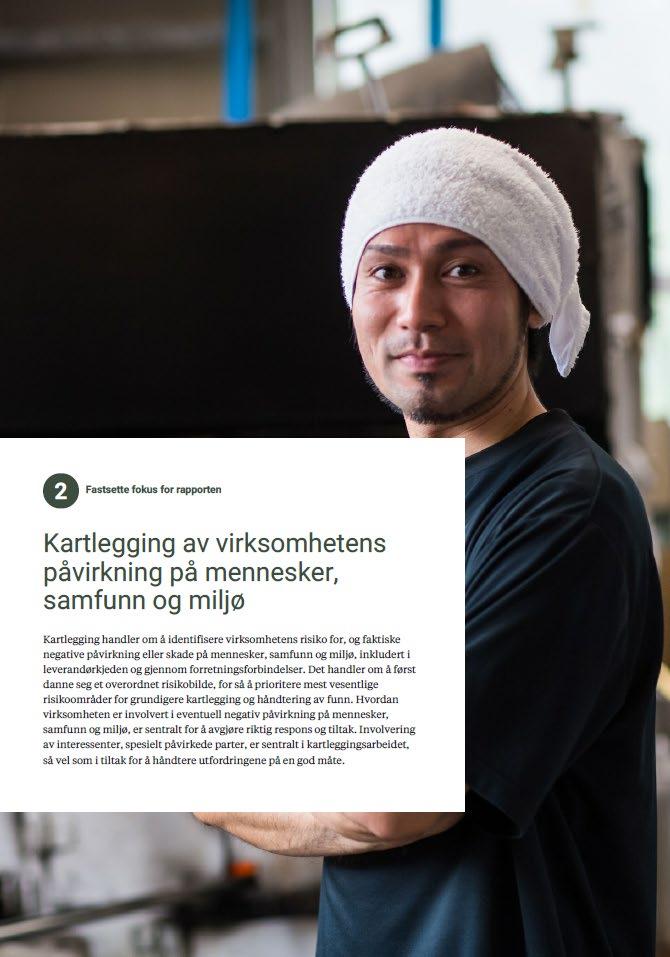
Defining the focus for reporting
Identify and assess the company's impact on people, animals, society and environment
“Identify and assess” is about identifying the company’s's risk for, and actual negative impact on, people, animals, society and the environment, including in the supply chain and through business relationships. As a first step the enterprise should get an overall risk picture, before subsequently prioritising further mapping and measures where the risk of negative impact is the greatest, i.e. salient issues. The company’s involvement in the negative impact on people, animals, society and the environment is central to determine which measures the enterprise should implement in the next step of the due diligence model. Involvement of stakeholders, especially those affected, is central when assessing risks. It is also important to consult with stakeholders when implementing measures to manage the negative impact.
2.A Mapping and prioritising
PRIORITISED ACTUAL OR POTENTIAL NEGATIVE IMPACT ON PEOPLE, ANIMALS, SOCIETY, AND THE ENVIRONMENT
Prioritisingoneormoreriskareasonthebasisofseveritydoesnotmeanthatsomerisksaremore importantthanothers,orthatthecompanyshouldnottakeactiononotherrisks,butthatriskswith thegreatestnegativeimpactareprioritisedfirst.Mappingandprioritisationareacontinuous process.
2.A.1 List the company's actual negative impacts and/or prioritized significant risks of negative impact/harm on people, animals, society and the environment. Take note that the prioritized risk that you list in the table below will be exported to step 3 of this report, where you will be asked to answer how you work with stopping, preventing, or reducing the negative impact.
Salient issue Related topic
Employee rights
Freedom of association and collective bargaining
Occupational Health and safety
Wages
Working Hours
Regular employment
Human rights violation
Forced labour
Child labour Discrimination
Brutal treatment
Marginalized populations
Climate impact
Environment
Emission
Greenhouse gas emission
Energy
Waste
Water
Use of materials
Global
The risk mapping process is conducted using templates and member resources available at Ethical Trade Norway.Labor rights and human rights violations are of primary concern at our first-tier suppliers, while environmental impact and chemical management are our focus further down the supply chain. The risks differ somewhat between the different production countries.The prioritization of one or more risk areas based on severity does not imply that some risks are more important than others. Rather, mapping and prioritization are ongoing processes.

IDÉ House of Brands AS I 24
Geography
Bangladesh China Turkey
Bangladesh China India Turkey
JUSTIFICATION FOR THE PRIORITISATION OF RISKS OF NEGATIVE IMPACT ON PEOPLE, ANIMALS, SOCIETY, AND THE ENVIRONMENT
2.A.2 Describe: a) the company's routines for mapping and identifying risk and show how the negative impact was identified and prioritised in this period: b) eventual aspects of the enterprise that have not been covered in this report (product groups, own products, departments etc.) and why you not chose to prioritize these in the continued work: c) how information was gathered, what sources were used, and which stakeholders have been involved/consulted: d) whether you have identified areas where information is lacking in order to get an overview, and how you are planning to proceed to collect more information/handle this.
IDÉ House of Brands AS employs a systematic approach to risk assessment, which encompasses potential new suppliers, existing contractual partners, and products. Prior to entering into a business relationship with a new supplier, a qualification process is conducted in which the supplier responds to an ESG survey. Our sustainability requirements are on par with other factors such as quality and price. CEMAsys Supply Chain Control assists us in evaluating suppliers based on quality standards and business practices, including environmental and social information. The system helps us map our supplier base and maintain an overview of the information and documentation collected. Furthermore, we gather supply chain and environmental risk documentation at the product level through the use of our proprietary product registration form. This information is utilized in the risk assessments, in conjunction with EHN's risk mapping tool, which assists in identifying the company's priority risk areas, including labor rights, human rights violations, and human rights and environmental impact. In addition to the aforementioned EHN risk tool, we utilize the CSR Risk Checker as a source of information.( Start the check | MVO Risico Checker), Forced/Child labor risk: List of Goods Produced by Child Labor or Forced Labor | U.S. Department of Labor (dol.gov) and DFØ product risk.
The prioritized risk areas have been defined based on the risk of negative impact in relation to geography, production, and impact. With regard to employee rights , low wages and overtime work represent a significant challenge in China, Bangladesh, and Turkey. The same is true of health, safety, and the environment in the workplace. As consumers, we should be aware that the cheapest products are often those that harm people or the planet in one way or another.
Human rights violations: In India, our primary concern is the exploitation of children in the workforce, as well as the prevalence of discriminatory practices and substandard working conditions. Tanneries, in particular, present a significant risk to the health and safety of their employees, who often work in environments that lack adequate protection. Additionally, there is a high prevalence of child labor in Bangladesh, China, and Turkey, which are countries where IDÉ has established partnerships.
The environmental impact of human activity is a global challenge. Climate change is a visible and pervasive phenomenon that transcends national boundaries. The use of harmful chemicals is prevalent throughout the entire supply chain. Another significant challenge is the management of waste, the use of materials, and the scarcity of raw materials.
The sections of the business not included in this report are the rental of computer equipment, purchases for office operations, catering, specific brand suppliers with whom we do not have a cooperation agreement, our own warehouse, printers, and carriers. These sections of the operation are not prioritized due to the low sales volume. Other operational areas for which we lack sufficient data are our Nordic contract partners, where we have limited insight into the supply chain.

IDÉ House of Brands AS I 25
INDICATOR
Percentage of suppliers that have been mapped
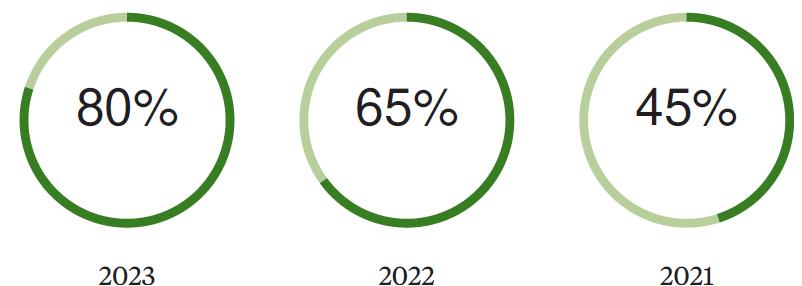
All partners with a cooperation contract are required to sign our Code of Conduct and to share their own code of conduct with us. In addition, they are required to complete an annual ESG survey. In 2023, the survey questions were adapted to align with the Norwegian Transparency Act, with specific attention paid to questions pertaining to human rights and decent working conditions.
ADDITIONAL SEVERE IMPACTS
2.A.3 Describe any other negative impacts on people, animals, society and the environment that were identified in the mapping of the enterprise, supply chain or other business relationships during the reporting period and how these have been handled.
We are aware that our business practices may have potential negative impacts on people, society, and the environment. As such, we are committed to transparency, collaboration, and planning with our contract partners and customers. In the fall of 2023, we requested documentation from all our contract partners on all products that could contain iron and steel originating in Russia. This was due to the ban that came into force on September 30, 2023, prohibiting the import or purchase of a number of iron and steel products processed in a third country and containing Russian iron and steel.

IDÉ House of Brands AS I 26
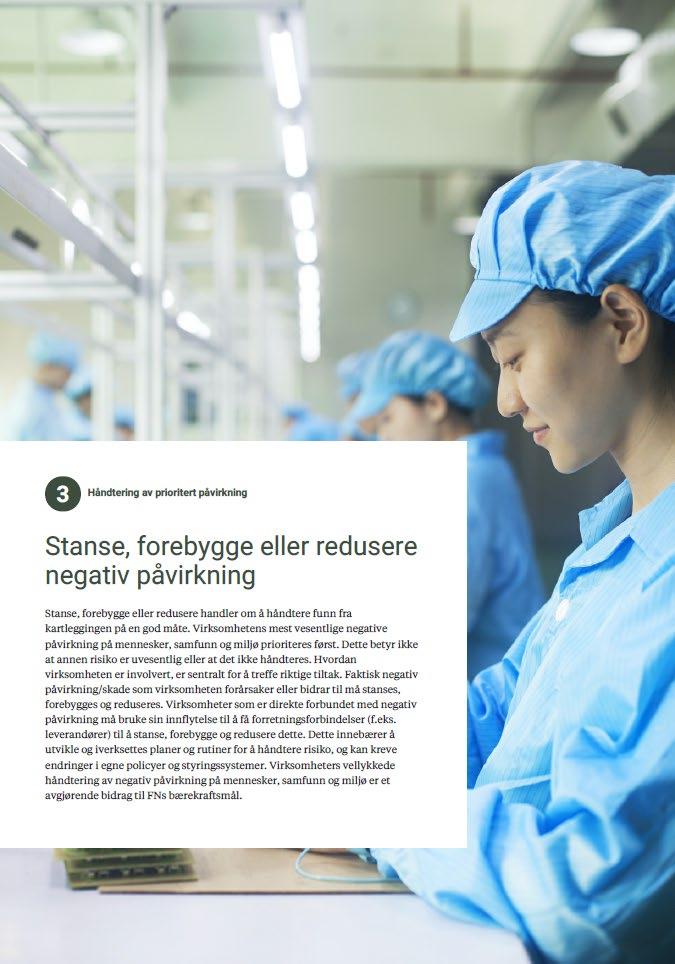

Management of salient issues
Cease, prevent or mitigate negative impacts
“Cease, prevent and mitigate” is about managing findings from the risk assessment in a good way. The most salient negative impact on people, animals, society and the environment should be prioritised first. This does not mean that other risks are insignificant or that they are not handled. The way the enterprise is involved in the negative impact is key to taking the appropriate action. Negative impact that the enterprise causes or contributes to must cease, be prevented and be reduced. To address negative impact directly linked to the enterprise, e.g. in the supply chain, the business must use its leverage to influence the entity causing the negative impact to cease, prevent or mitigate it. This involves developing and implementing plans and routines to manage risk and may require changes to the enterprise's own policy documents and management systems. Effective management of the negative impact on people, animals, society, and the environment is a major contribution to the achievement of the Sustainable Development Goals (SDGs).
3. A Cease, prevent or mitigate
3.A.1 For each salient risk, add a goal, progress status and describe the measures you have implemented to handle the company’s prioritized negative impact on people, society and the environment.
Salient issue
Goal
Status
Employee rights
Low wages and working hours: The objective is to ensure that all personnel employed in factories manufacturing products for IDÉ House of Brands are provided with optimal working conditions and a fair remuneration.
It is recognized that the manner in which we procure goods and services can have a detrimental impact on the remuneration and working conditions of those employed in the supply chain. In third-party audits (amfori BSCI, Sedex SMETA), it is evident that factories frequently receive unsatisfactory scores in this area. This is a topic that we frequently discuss with customers, who exert pressure on us with regard to price and delivery time.
Goals in reporting year
The objective for the forthcoming reporting year is to initiate a constructive dialogue with our customers, with the aim of providing them with information regarding the impact of price pressure and short delivery times on low wages and involuntary overtime.The objective is to enhance the purchasing procedures and exert influence over the purchasing decisions of our customers, thereby preventing any contribution to the negative consequences.
Describe already implemented or planned measures to cease, prevent or mitigate negative impacts and reasoning behind the selected measures:
As consumers, we should be aware that the cost of a product is not necessarily indicative of its ethical or environmental impact. In fact, the opposite may be true. Products that are inexpensive may be harmful to people or the planet in some way. As we do not possess any ownership interest in the factories where our products are manufactured, we are unable to exert any influence over the wages paid to the workers or the prevalence of involuntary overtime work. In instances where we engage in the production of goods for our own warehouse, it falls upon us to ensure that the purchasing practices employed are in accordance with the highest standards of ethical conduct. One such measure is the transparent disclosure of the bill of materials (BOM) and the establishment of a constructive dialogue regarding wages. We will engage in regular communication with our contractual partners to ascertain the underlying causes of and to agree upon measures to reduce the incidence of involuntary overtime work. We will plan our own purchases in a manner that avoids contributing to time pressure. In the event that the desired dialogue and transparency are not achieved, funds have been set aside to facilitate a BSCI audit, which will assist in the implementation of concrete measures.
Describe actual or expected results of measures mentioned above, as well as goals and activities for the coming reporting year:
It is our objective to act as a fair partner and to ensure that our selected contract partners are provided with good working conditions. Furthermore, we will continue to inform our customers of the adverse effects that pressure on price and delivery time can have on low wages and involuntary overtime work. We will engage in an open dialogue with our closest agreement partners regarding low wages and will request BOM on all special production of goods destined for our own warehouse. It is anticipated that membership in amfori will facilitate the acquisition of knowledge and the implementation of tangible measures to mitigate the adverse effects of our purchasing practices.

IDÉ House of Brands AS I 28
Goal
Status
Goals in reporting year
Child labor and forced labor:
It is the responsibility of IDÉ House of Brands AS to ensure that there is no child labor or forced labor in the factories we use for special production.
A risk assessment has been conducted to identify potential partners involved in special production processes where child labor and forced labor may be a concern. While no violations have been uncovered, this does not provide absolute assurance. Therefore, an open dialogue will be maintained, and it will be clearly communicated that child labor and forced labor are always unacceptable.
It is the responsibility of IDÉ House of Brands AS to ensure that there is no child labor or forced labor in the factories used for special production. In order to ensure this in the most effective manner, we will only utilize contract partners who demonstrate a willingness to be transparent about their business model and subcontractors.
Describe already implemented or planned measures to cease, prevent or mitigate negative impacts and reasoning behind the selected measures:
Mapping and follow-up are ongoing processes, and we will continue to communicate with our partners in order to achieve transparency in the supply chain. In the fall of 2023, IDÉ House of Brands AS became a member of amfori. This decision was made in order to provide our own network and more competent partners who can assist us in implementing measures to prevent or mitigate the negative consequences of the aforementioned situation.
Describe actual or expected results of measures mentioned above, as well as goals and activities for the coming reporting year:
It is anticipated that our collaboration with amfori will facilitate the acquisition of novel and invaluable expertise within our organization, as well as the implementation of training programs and initiatives designed to mitigate the risk of adverse external impacts. All of our first-tier contract partners (factories) will be registered in our BSCI audit scheme. This will allow us to better ensure that they are compliant with our requirements. Furthermore, we will implement a clear communication strategy to ensure that all IDÉ employees are aware of which contract partners we can use. Another objective is to identify new contract partners in Europe with the intention of relocating our own production to less risky countries.

IDÉ House of Brands AS I 29 Salient issue
Human rights violation
Goal
Status
Goals in reporting year
Environmental Impact : It is acknowledged that the operations of this enterprise may have a detrimental effect on the environment. It is the intention of this enterprise to assume an environmental responsibility that extends beyond the requirements of legislation and regulation. It is considered that the adoption of sustainable business practices is a prerequisite for the sustainable development of this enterprise. IDÉ House of Brands endeavors to comply with all global chemical regulations. It is our objective to ensure that the people who produce our textile products, the environment in which they live, and the end user of our textile products are safe from harmful substances, in accordance with chemical regulations.
It is our objective to reduce our environmental impact and to continuously improve our environmental performance. In order to achieve this, we have created climate accounts, set strategic reduction targets, carbon offsetting by buying carbon credits, and we are building networks to jointly reduce the environmental impact of our supply chain.
It is our objective to continuously improve and reduce our negative environmental impact by selecting products that are made from recycled materials and do not contain any harmful chemicals. We will assist our customers in achieving the same goal. All products bearing the iwear (IDÉ House of Brands proprietary brand) designation must be manufactured from components that have been approved by the Bluesign® certification program. We will integrate the principles of the circular economy into our product development process and provide guidance on the appropriate management of waste. We will enhance our own and our customers' awareness of the environmental impact of the factors in our business model that pose the greatest risk. In addition, we will provide the necessary training internally and externally. We will disseminate information about our contract partners who have made conscious choices with regard to this matter and provide training and encouragement to those partners who require it.
Describe already implemented or planned measures to cease, prevent or mitigate negative impacts and reasoning behind the selected measures:
We prepare annual climate accounts to ascertain the efficacy of the measures we implement. We are pleased to contribute to the planting of mangrove trees as compensation for our greenhouse gas emissions. These official climate quotas fund the planting of 3.5 mangrove trees for each ton of carbon dioxide (CO ₂) emitted. In addition to the climate impact, the Thor Heyerdahl Climate Park provides work and income for the local population, which aligns with two of the Sustainable Development Goals: Goal 4 (Quality education) and Goal 8 (Decent work and economic growth). The planting of mangrove forests directly creates local employment opportunities through the cultivation of shoots. In addition to planting trees, the initiative strengthens the livelihoods of local communities. The planting of new mangrove forests sequesters CO2 from the atmosphere through photosynthesis, thereby mitigating climate change. One new mangrove tree can bind approximately 1 tCO2e over a twenty-year period. Furthermore, we are engaged in a collaborative effort with Treebytree, which is dedicated to the sustainable restoration of deforested landscapes. Treebytree and its partners are engaged in a global initiative to ensure that the restoration efforts are both meaningful and effective. We have chosen to become a bluesign® system partner because we believe that collaboration is essential for reducing the environmental impact of our supply chain. All components of our new iwear collection have been approved by the bluesign®system, with the aim of becoming bluesign®products in the near future.
Describe actual or expected results of measures mentioned above, as well as goals and activities for the coming reporting year:
Our climate accounting methodology enables us to quantify the impact of our actions and to set future goals. We are a bluesign®SYSTEM PARTNER and are thus required to utilize the best available techniques and to eliminate hazardous chemicals from the outset, throughout the supply chain. This approach ensures the security of end products and provides safe working environments in the supply chain. Wherever feasible, we will utilize recycled materials and affix labels to products indicating the appropriate waste management procedures. This approach will facilitate the recycling of waste that can be recycled.

IDÉ House of Brands AS I 30 Salient issue
Climate impact
OTHER ACTIONS RELATED TO MANAGEMENT OF NEGATIVE IMPACTS
Describe the company's general measures to cease, prevent or mitigate negative impacts, including in the supply chain.
3.B.1 Reduction of nature - and environmental impact
IDÉ House of Brands AS endeavors to cultivate close and enduring relationships with its contractual partners and customers. This approach enables us to collaborate effectively in safeguarding the wellbeing of people, society, and the environment. It is imperative that we adopt a circular approach to resource management, with the objective of reducing the consumption of virgin raw materials, waste emissions, energy and water consumption. In order to reduce the consumption of virgin raw materials, it is of the utmost importance to implement effective waste management practices.
A significant proportion of our manufactured products are therefore labelled with a QR code, which indicates the correct method for their disposal. The focus will be on a circular perspective, with the following priorities: quality, reuse, repair, and recycling. In the context of textiles, we are cognizant of the concept of extended producer responsibility and have established a project group tasked with mapping out the optimal approach for the receipt, repair, and recycling of used textiles.
Regrettably, Norway lacks the necessary infrastructure to recycle textiles at present; however, we are closely monitoring developments to ensure that we are prepared to implement effective recycling procedures once the relevant legislation is enacted.
Internally, we have established specific strategic objectives with regard to the reduction of carbon emissions. We calculate carbon emissions for products and transportation in order to inform our internal choices and to provide our customers with recommendations. In order to facilitate more environmentally conscious decision - making.
3.B.2 Reduction of greenhouse gas emissions
Internally, we have established specific strategic targets for reducing greenhouse gas emissions. However, since IDÉ House of Brands is a sales organization with sales offices, reducing our own electricity consumption will not have the greatest impact. The majority of the emissions that we contribute to originate from our supply chain. Consequently, we seek to exert influence and encourage our contractual partners to strive to reduce their emissions to the greatest extent possible. Some of our contract partners calculate greenhouse gas emissions at the product level. These are promoted and force other partners to follow suit.
The 2030 calculator is employed by us as a tool to furnish our customers with recommendations for making more informed choices.
3.B.3 Adapting own purchasing practices (sourcing)
We assist customers in the planning process, helping them to avoid time pressures that may result in the unplanned use of overtime and transportation by air. During the year, we organize several professional days with internal or external speakers, where our customers receive information on various topics relating to sustainable business practices and healthy purchasing practices. This can, for example, be information about how price pressure affects the conditions of those who are part of our supply chain. One aspect of our supply chain that we address is the discrepancy between the minimum and living wages. We also examine ways to reduce the use of plastic as packaging material, as well as the environmental impact of various materials. Finally, we consider other factors that can have a negative impact on people, society, and the environment. All IDÉ employees are required to undergo training in, and to adhere to, the five key principles that underpin the company's approach to sustainable business practices. These principles are as follows: TARGET GROUP, RISK ANALYSIS, LIFE CYCLE, CHOICE OF RIGHT BUSINESS PARTNER and ENVIRONMENTAL IMPACT.

IDÉ House of Brands AS I 31
3.B.4 Choice of products and certifications
IDÉ House of Brands is ISO 14001 certified and has a strong focus on products that have been assessed as being a “better environmental choice” or more “sustainable”. Despite the absence of an accepted definition of a "sustainable" product within our industry, we endeavor to promote the opportunities for selecting products that are Oeko - Tex certified, BCI cotton, FSC, Fairtrade, or other relevant certifications that are currently available for the majority of product categories. There are numerous certifications to choose from, and several of our agreement partners have selected multiple certifications. IDÉ House of Brands has chosen to become a bluesign® system partner. This decision was made because the textile industry is the most polluting industry in the world, and 37% of our special production comprises the textile product group. By utilizing the network of bluesign® system partners, we are able to exert control over the sourcing of raw materials, the operations of factories, the production process, the tracking of materials, and the mapping of environmental damage. We encourage our contract partners in the textile industry to adopt a similar approach, and several of them have become system partners during the reporting year.
For other product groups, we ensure that products are tested in accordance with applicable laws and regulations, thereby preventing any harm to people or the environment. We endeavor to influence our customers to purchase products with a long lifespan, thereby reducing the total consumption and extraction of non - renewable resources.
3.B.5 Actively support free trade union organization and collective bargaining, or where the law does not allow it, actively support other forms of democratically elected worker representation
All partners of IDÉ House of Brands AS have signed our Code of Conduct (CoC), which has been translated into English and Chinese. One of the clauses addresses the fundamental rights of workers to freedom of association and collective bargaining. It is imperative that workers be afforded the right to join or form trade unions and to engage in collective bargaining. In instances where the law does not permit this, it is the responsibility of the factories that we operate to facilitate the development of an independent form of worker representation. We recognize that the absence of independent trade unions represents a significant risk factor.
3.B.6 Contribution to development, capacity building and training internally and of suppliers and workers in the supply chain
In collaboration with Amfori BSCI, several requirements pertaining to training and employee involvement must be met. These will be incorporated into the annual audit procedure, which will indicate the necessity for implementing corrective action plans.
Internally, we pursue continuous development of competence. All new employees at IDÉ receive comprehensive training in our values and are introduced to sustainable business practices. We have an internal training program called "IDÉ school" for all employees, and our intranet is structured as a knowledge center. We invest a significant amount of time and resources in this area because we believe that a high level of internal knowledge is crucial for our communication with customers and contract partners. The objective is to facilitate a positive impact on both customers and business partners.

IDÉ House of Brands AS I 32
3.B.7 Combatting corruption and bribery in own company and supply chain
IDÉ House of Brands AS has internal guidelines for corruption and bribery. Additionally, a section on corruption and bribery is included in our external Code of Conduct (CoC). Upon the signing of contracts, this point is reviewed, and a routine review is conducted on an annual basis. The industry in which we operate is one that is precariously balanced with regard to gifts. Consequently, all employees must exercise great caution when it comes to gifts and invitations from and to customers, partners, and suppliers of sizes beyond what applies to ordinary attention. If anyone is in doubt about whether a gift or invitation is within these limits, the immediate manager must be consulted. In order to ensure that we do not exceed the boundaries of acceptable conduct and contribute to any actions that could be perceived as bribery, we will commence the process of becoming ISO 37001 certified (a management system for anti - corruption) in the forthcoming reporting period.
3.B.8 Other relevant information concerning the company’s work to reduce, prevent, and manage negative impact on people, society and environment
We monitor developments in the EU regarding forthcoming legislative and regulatory changes (CSRD, CSDDD, ESPR, PPWR, EPR and Green Claims Directive). We are optimistic about all forthcoming frameworks and regulations, as we believe that regulations will help level the playing field for businesses, empower consumers to make informed sustainable choices, and move our entire industry faster towards more sustainable business practices. IDÉ House of Brands aims to be a driving force in our industry. This expansion of resources is intended to facilitate the integration of sustainability and product safety considerations into the company's operations. In addition to the existing sustainability management team, a dedicated sustainability group has been established, comprising individuals from various roles and locations within the IDÉ Group. This initiative is designed to enhance the company's capacity to implement sustainable business practices across the entire organization.

IDÉ House of Brands AS I 33
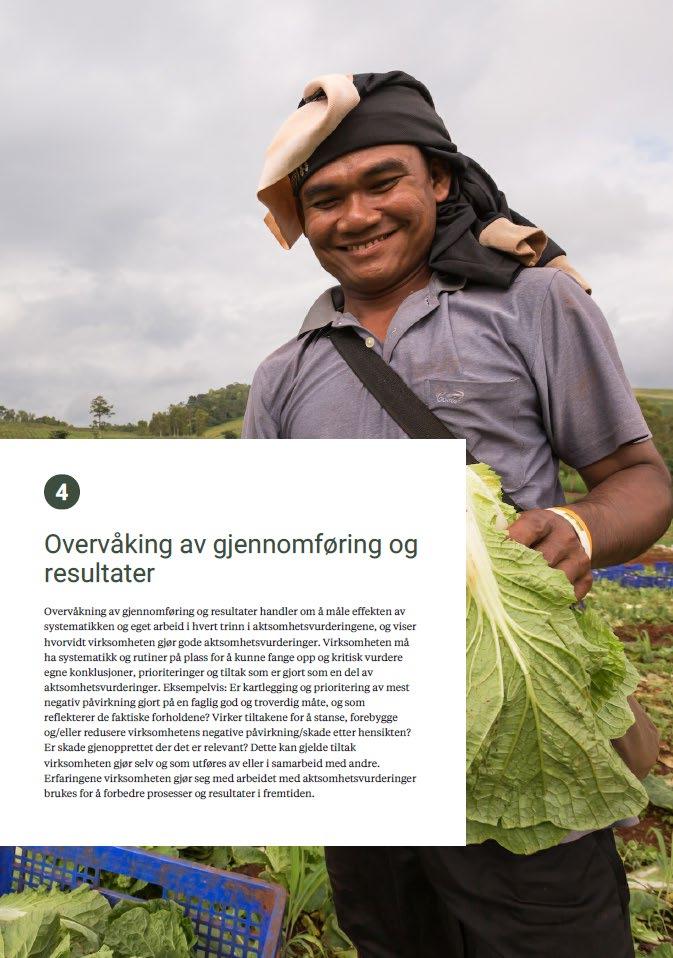

Track implementation and results
Tracking implementation of actions and results relates to measuring the effects of the systematic approach and own work in each step of the due diligence process, showing whether the enterprise conducts sound due diligence work. The enterprise needs to have procedures and routines in place in order to uncover and critically assess own conclusions, prioritizations and measures that have been made as part of the due diligence process. For example, is mapping and prioritisation of salient issues done in a scientifically sound and credible way? Does it reflect the actual conditions in the supply chain? Do measures aimed at ceasing, preventing and reducing the enterprise's negative impact work as intended? Is negative impact remediated where relevant? This may apply to measures taken by the enterprise alone or carried out in collaboration with others. The enterprise’s experiences from working on due diligence should be used to improve procedures and routines in the future.
4.A. Track and assess
4.A.1 Describe the a) assignment of responsibility for tracking the effect and result of measures implemented to cease/prevent/mitigate salient risks of negative impact on people, animals, society and the environment, as well as how the tracking is done in practice, b) who is responsible for evaluating the enterprise's implementation and work with due diligence, and how the evaluation is done in practice.
The implementation of sustainable business practices represents an essential component of our operational procedures. The primary responsibility for this initiative lies with the Head of Sustainability and Product Quality, in collaboration with Category Managers and the Nordic Head of Purchasing & Logistics. The Head of Sustainability and Product Quality is responsible for operational monitoring, initiating actions, and follow - up. The sustainability management team is responsible for evaluating existing goals and measures, proposing new goals and measures, and setting strategic goals. Some measures are long - term and general, making it difficult to describe their specific effects. Other measures are easier to assess. The data is collected using the amfori and the CEMAsys Supply Chain Control platform. The purchasing department submits a report to management every six months and undergoes an ISO audit on an annual basis. The head of sustainability and product quality is responsible for preparing the report to Ethical Trade Norway, although different parts of the business are also required to provide information for the report.
4.A.2 Describe how the company ensures that measures taken to identify, prevent and reduce negative impact actually work
It is our policy to encourage our contractual partners to demonstrate independent work and to have policies and procedures in place to manage risks. It is our expectation that our partners will take their work and responsibilities seriously. We are dedicated to fostering long - term relationships and a significant proportion of our partners have been with us for many years, with some having been with us since our inception in 1987. The first comprehensive cooperation agreements were signed in 2009, and 50% of these partners are still with us. In 2015, we had collaboration agreements with 160 partners. Of these, 86 remain in place to this day.
We are dedicated to fostering relationships through regular meetings and discourse. Through a process of due diligence, it has been identified that social dialogue and climate action present a challenge. All of our partners are required to respond to an ESG survey on an annual basis. This allows us to monitor any new information and status updates. Where we have identified areas for improvement, we will follow up and work with suppliers to achieve targets.

IDÉ House of Brands AS I 35
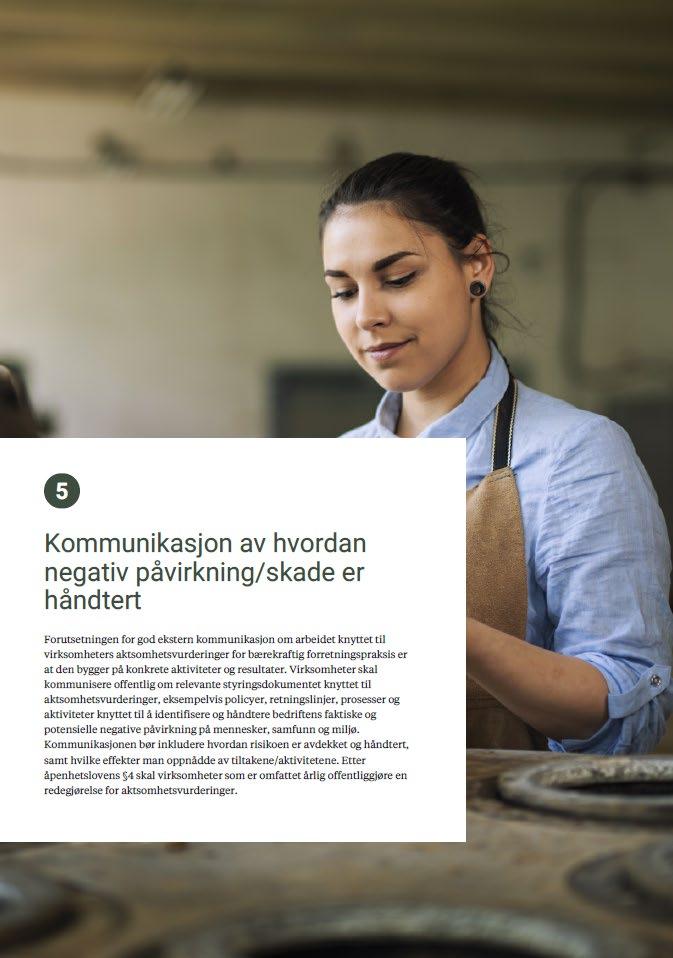

Communicate how negative impacts are addressed
A prerequisite for good external communication on due diligence for responsible business conduct is that it builds on concrete activities and results. Companies should make relevant documents concerning due diligence publicly accessible, i.e. policies, codes of conduct, guidelines, processes and activities related to identifying and handling the company’s actual and potential negative impacts on people, society and environment. Communication should include information about how the risks have been identified and handled, as well as the effect of the measures/activities. The Transparency Act (Åpenhetsloven) § 5 requires companies to publicly account for their human rights' due diligence on an annual basis.
5.A External communication
5.A.1 Describe how the company communicates with affected stakeholders about managing negative impact
Communication with stakeholders is conducted via email, team meetings, and face - to - face meetings. The Nordic Head of Purchasing & Logistics, Category Managers, and Head of Sustainability and Product Quality maintain regular contact with contract partners. It is imperative that the Code of Conduct (CoC) be accessible to all personnel employed at the factories utilized by IDÉ for its own production. Consequently, we request that it be posted in the production room. By translating the CoC into Chinese, we aim to ensure that the workers who are able to read it comprehend its content.
In instances where direct contact with the factory is not possible, it is imperative that our partners disseminate our message and policies throughout the supply chain. At the behest of IDÉ House of Brands, contract partners are obliged to furnish documentation attesting to their and any subcontractors' compliance with the aforementioned guidelines. It is recommended that all stakeholders implement a system for the handling of complaints related to human rights, labor rights, animal welfare, the environment, and corruption.
The Code of Conduct is accessible to the general public on the company website. Information about our responsibilities, goals, and focus is made publicly available on our website. Employees in our own operations receive comprehensive training in our policies and values, equipping them with the knowledge to communicate with customers about measures we can take to reduce the risk of negative impact and harm to people, society, and the environment.
5.A.2 Describe how the company publicly communicates its own work on identifying and managing negative impact/harm
Our commitment is regularly communicated in social media, on our own website, and in marketing material produced in - house. The website contains a section dedicated to sustainability, which introduces and elaborates on the company's activities and objectives in this area. This page contains a comprehensive set of guidelines for sustainable business practices, including our Code of Conduct, an environmental policy, guidelines for suppliers, a sustainability strategy, climate accounts, and an explanation of why we offset our carbon emissions and which sustainability goals we prioritize. This section outlines the rationale behind our carbon offsetting activities and the specific sustainability goals that we prioritize. The inaugural sustainability report was published on June 30, 2023, and is presented in accordance with the Transparency Act, in alignment with our annual report to Ethical Trading Norway.
We are dedicated to transparency, acknowledging the challenges we face and acknowledging our role in them.

IDÉ House of Brands AS I 37
5.A.3 Describe the company's routines for maintaining and answering external inquiries related to the information requirement imposed by the Transparency Act
IDÉ House of Brands AS has made available on its own website information about the Transparency Act, with a reference to its own email address for information requests: aapenhetsloven@ide.no
In 2023, a total of 54 requests for information were received. All of these were answered within the requisite three - week period, in accordance with the relevant legislation.
When IDÉ employees receive information requests via email, a specific handling routine has been established. The requests are then forwarded to aapenhetsloven@ide.no, and the sender is replied to as follows:
"We appreciate your interest in the Transparency Act.
IDÉ House of Brands AS adheres to the standards of due diligence as outlined in the UN Guiding Principles on Business and Human Rights (UNGP).Furthermore, the company adheres to the UNGP and the OECD Guidelines for Responsible Business Conduct.
I have transmitted your information request to aapenhetsloven@ide.no, who will respond to you as soon as possible. The response will be provided within a period of three weeks.
Furthermore, the aforementioned procedure is applicable to information requests received via social media or the company's contact form on its website.

IDÉ House of Brands AS I 38


Provide for or cooperate to ensure remediation when appropriate
Once a company has identified that it has caused or contributed to negative impact on people, society or the environment, the company must provide for, or cooperate in, remediation. Remediation may involve financial compensation, a public apology or other ways to remediate the negative impact. Another aspect of remediation is that companies should provide for, or cooperate with legitimate complaint mechanisms, to ensure that workers and/or local communities can raise complaints and be heard.
6.A Remediation
6.A.1 Describe the company’s policy for remediation of negative impacts on people, society and the environment
It is our objective to maintain an open and transparent communication with regard to all issues and challenges pertaining to our social and environmental impact. Our policy stipulates that in instances where our activities result in or contribute to adverse effects on individuals, communities, or the environment, we will cease such activities and endeavor to rectify the damage. In cases where we are not directly responsible for or have contributed to the negative impact, but are nevertheless directly associated with it, we will take appropriate measures to mitigate the impact. Through one of our partners, IDÉ House of Brands AS will utilize its influence to persuade the partner responsible for the damage to prevent or mitigate the damage. The termination of a cooperation agreement will only occur if the partner, after repeated inquiries, does not demonstrate a willingness to rectify the situation. In such a situation, we will also endeavor to facilitate productive communication with those who have been affected.
6.A.2 If relevant, describe cases of remediation in the reporting year
To the best of our knowledge, our operations have not resulted in any instances of damage to people, society, or the environment to the extent that restoration is required.
6.B. Ensure access to grievance mechanisms
6.B.1 Describe what the company does to ensure that employees in own enterprise and other stakeholders, especially impacted workers and local communities have access to whistleblowing systems and grievance mechanisms when this is needed.
A dialogue is maintained with our contractual partners, although there are currently no official complaint systems initiated by IDÉ House of Brands. In the event that IDÉ House of Brands is directly implicated in any form of negative impact, damage, or injury, we will endeavor to facilitate recovery and advocate for the establishment of internal grievance mechanisms or third - party complaint systems. Furthermore, IDÉ House of Brands AS has established third - party complaint systems.
For further information, please refer to the following link: IDÉ House of Brands - Whistleblowing (idegroup.eu)

IDÉ House of Brands AS I 40
Contact details: IDÉ House of Brands www.idegroup.eu Wenche Moseng, Head of Sustainability and Product Safety w enche.moseng@idegroup.no etiskhandel.no





 Heidi Furustøl Executive Director Ethical Trade Norway
Heidi Furustøl Executive Director Ethical Trade Norway


 Nina Lauritzen Managing Director
Nina Lauritzen Managing Director
 Kirsten Lauritzen
Lise Lauritzen Board member Board member
Kirsten Lauritzen
Lise Lauritzen Board member Board member
 Nina Lauritzen Lasse Lauritzen Managing Director CEO Board member Board member
Nina Lauritzen Lasse Lauritzen Managing Director CEO Board member Board member

































